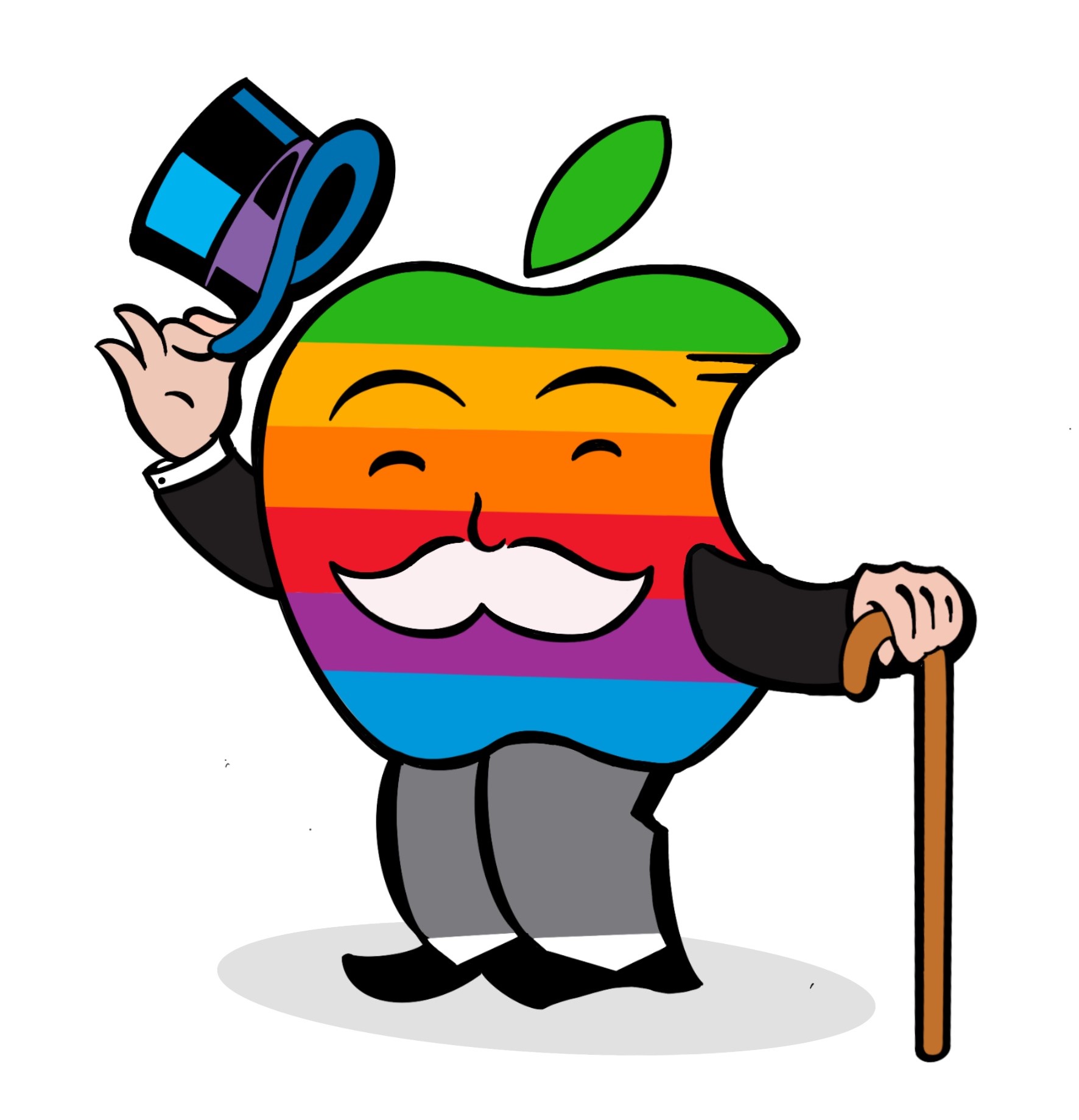Facebook and Apple, among other tech giants, are monopolizing the market without consumers even noticing. This silent and dangerous takeover threatens the growth of new and small businesses.
Monopolies within the U.S. are another issue of wealth concentrated within the hands of a few. Since a large portion of our economy relies on technological advancements, that sector has been rising more than ever. Instead of allocating resources for new technological growth, investments are being poured into the same big-name companies such Apple, Microsoft and Facebook. It’s one thing for companies to garner the popularity of the majority, but it’s another thing when they have an unfair advantage or platform that makes them more favorable to the public.
The new corporate goliaths have been very good for their executives and largest shareholders—and bad for almost everyone else. Sooner or later, the companies tend to raise prices. They hold down wages, because where else are consumers going to go? They use their resources to sway government policy. Many of our economic ills—like income stagnation and a decline in entrepreneurship—stem partly from mass amounts of corporate control.
For example, Apple has raised its phone prices tremendously over the past couple years. Despite the most recent phone costing $999, it still sold exceedingly well.

“But that price increase and others across Apple’s product line won’t hurt demand, but rather help it,” Morgan Stanley said. On the topic of Apple, another analyst Katy Huberty said, “Innovation-led price increases historically boost, rather than hinder, Apple demand.”
In 2016, Apple made more money than all of its competitors combined, taking in 56% of the profit in the mobile device market. Samsung made up 53% putting their combined total over 100% of the market, meaning companies such as Nokia and Motorola lost money.
The Sherman Antitrust Act is supposed to protect consumers from monopolies that corner a market and raise prices, yet the tech giants give consumers outstanding products for free (Google Maps and Facebook Messenger, for instance) or force prices down, as Amazon has done by under-pricing traditional retailers. The Sherman Antitrust Act forgives “innocent monopolies” that win just be being great at what they do. Admirably, our tech giants seem to have won their monopolies by playing by the rules better than anyone, and that’s not a crime. In fact, it’s what our capitalist rules say they’re supposed to do.
America was born as “a nation of farmers and small-town entrepreneurs,” the historian Richard Hofstadter once wrote. From the Boston Tea Party serving as one of the first instances of market rebellion, a strong strain of anti-monopoly sentiment has run through our politics ever since.
These companies may not be part of your daily life—or at least their stock status isn’t—but their market control will affect it. Even today, Apple and Samsung have taken over the cellular market so intensely that when it comes to buying a new phone, those are the only two that come to mind. Maybe you stopped using Facebook a couple years ago, but with their purchase of Instagram and Whats.app, they’re still part of your life.
All of these companies have their own products that are widely popular, but a large part of this is they are unavoidable even when not directly consuming their products. You may own a Macbook but still use Microsoft Word.
These business have no competition and no price restrictions. As they grow individually and acquire other companies their power continues to increase. Small business equate for half our job market, yet tech giants overshadow them. The solution is not to stop consuming their products because they are monopolizing the market—after all, to get to their current status they had to be popular—but there needs to be more regulations. There needs to be a hold on one organization being able to saturate a market or one group of people handling most of our money.






